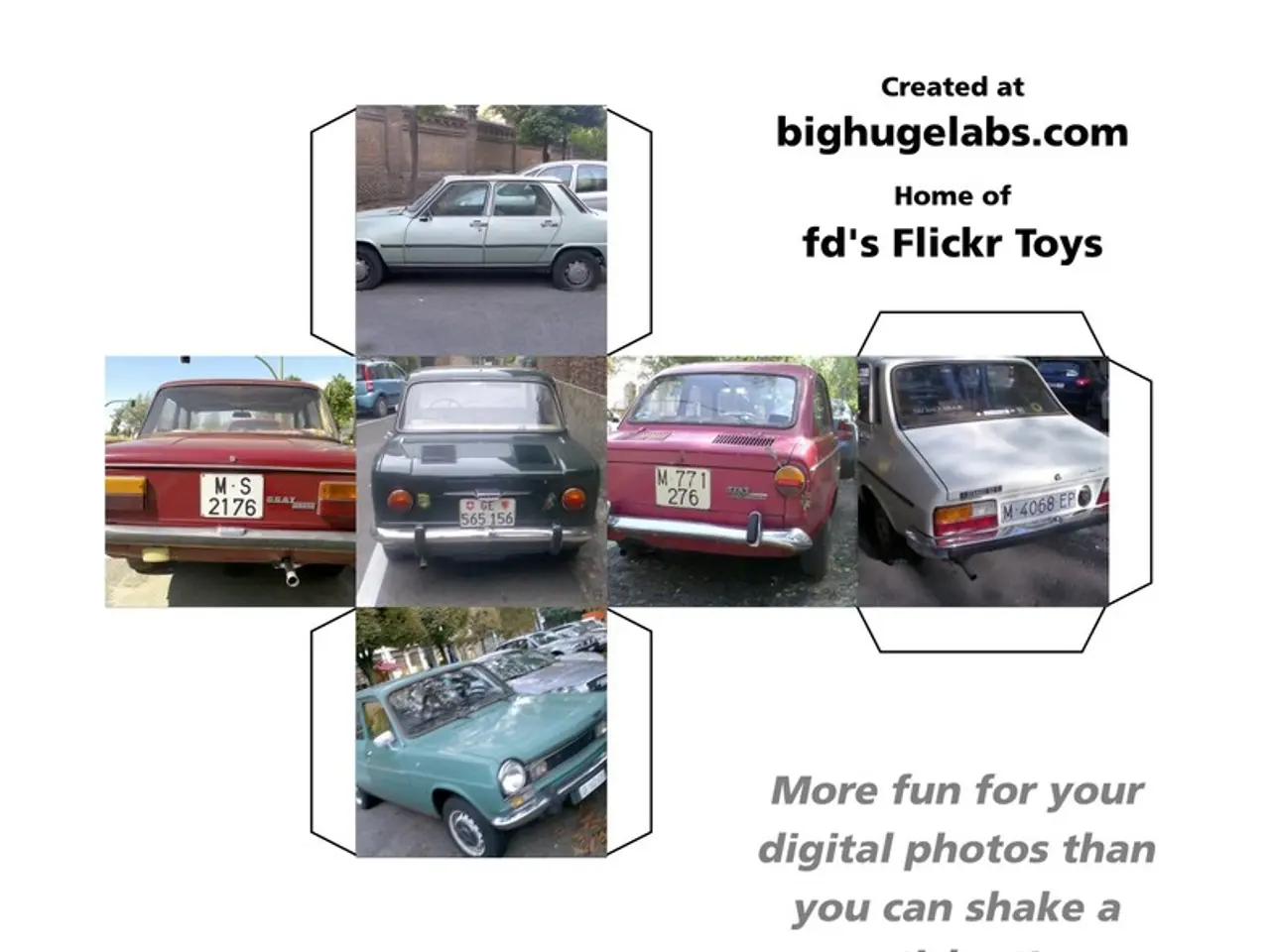Over forty percent of the freshly sold automobiles in July were electric models.
In 2025, the demand for electric vehicles (EVs) in Germany has shown a significant increase, with battery electric vehicles (BEVs) accounting for nearly one in five new car registrations. This growth is driven by record domestic production, renewed governmental incentives, and strong consumer uptake.
The high demand for EVs in Germany, following a significant drop in demand last year, has been consistent throughout 2025. This surge in demand, despite a decrease in Tesla's sales, suggests a growing market for other automakers. In July 2025 alone, the number of newly registered EVs increased by 58% compared to the same month the previous year, totaling 48,600 vehicles.
German car manufacturers produced a record 635,000 battery electric cars in the first half of 2025, about 25% of total national car production. This makes Germany Europe's leading e-car production hub and the world's second-largest EV producer in 2025.
New EV registrations grew robustly, with battery-electric vehicle registrations rising 38% year-to-date and plug-in hybrid electric vehicle (PHEV) registrations increasing by nearly 60% in the first seven months of 2025.
The growth in EV registrations can be partially attributed to the introduction of new, affordable, and technologically advanced models, particularly in the entry-level segments. Imelda Labbé, president of the Association of International Motor Vehicle Manufacturers (VDIK), attributed the increase in EV registrations to the significantly larger vehicle offering in the entry-level segments.
The passenger car market in Germany has shown inconsistent trends, with a decrease in June and July 2025 compared to the same period last year. However, an overall increase in total registrations for the year indicates a resilient market. Despite the low number of Tesla registrations in July 2025, the low registrations in this month do not seem to have significantly affected the overall growth of the German car market.
The current government's reinstatement of purchase incentives for electric vehicles has helped revive demand and market momentum after a disruption in EV sales during 2023 due to subsidy program cuts. The shift in consumer preference towards fully electric vehicles over hybrids, driven by broader availability of BEV models and increasing consumer confidence in electric mobility supported by charging infrastructure investments, further fuels the growth in EV registrations.
As of mid-2025, BEVs constitute roughly 18.4% of new car registrations in Germany, representing a substantial growth trajectory compared to previous years. Plug-in hybrids also hold a significant share, with over 166,000 registrations in seven months, forming about a 10% market share themselves. The combined effect is a notable increase in the share of electric vehicles within the German new car market, accelerating Germany’s transition to low-emission transport and reinforcing its leading position in the European and global EV markets.
In summary, Germany’s rapid increase in EV registrations in 2025 is driven by record domestic production, renewed governmental incentives, and strong consumer uptake, culminating in an expanding EV market share of around one-fifth of all new vehicles registered.
[1] https://www.reuters.com/business/autos-transportation/german-ev-sales-jump-58-in-july-2025-2025-08-03/ [2] https://www.statista.com/statistics/1102868/new-car-registrations-germany-by-type/ [3] https://www.vdiw.de/presse/pressemitteilungen/2022/07/2022-07-18-neue-zulassungen-von-elektroautoen-in-deutschland-steigen-im-juli-2022-um-58-prozent/ [4] https://www.transportenvironment.org/sites/default/files/2022-07/Germany-e-mobility-report-2022.pdf [5] https://www.cleanenergywire.org/factsheets/germanys-electric-car-sales-boom-2022-07-19
The increasing demand for EVs in Germany is also driven by the introduction of new, technologically advanced models, particularly in the entry-level segments. This technology-driven growth contributes to the expanding EV market share in Germany, making up approximately one-fifth of all new vehicles registered in 2025.




